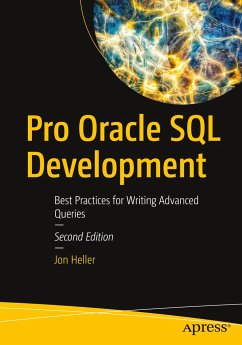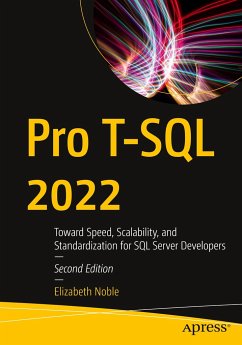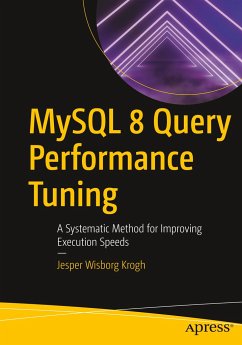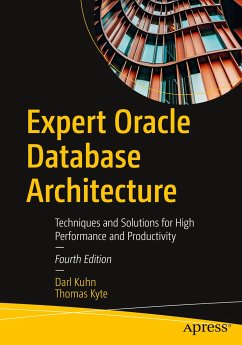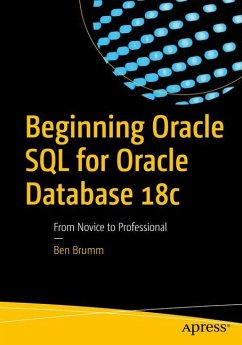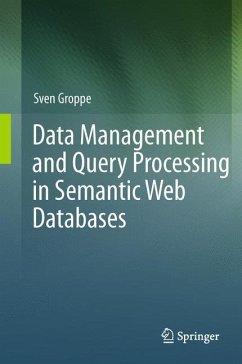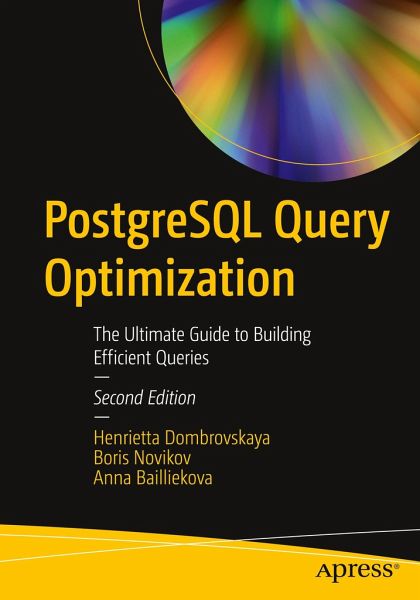
PostgreSQL Query Optimization
The Ultimate Guide to Building Efficient Queries

PAYBACK Punkte
19 °P sammeln!
Write optimized queries. This book helps you write queries that perform fast and deliver results on time. You will learn that query optimization is not a dark art practiced by a small, secretive cabal of sorcerers. Any motivated professional can learn to write efficient queries from the get-go and capably optimize existing queries. You will learn to look at the process of writing a query from the database engine's point of view, and know how to think like the database optimizer.The book begins with a discussion of what a performant system is and progresses to measuring performance and setting ...
Write optimized queries. This book helps you write queries that perform fast and deliver results on time. You will learn that query optimization is not a dark art practiced by a small, secretive cabal of sorcerers. Any motivated professional can learn to write efficient queries from the get-go and capably optimize existing queries. You will learn to look at the process of writing a query from the database engine's point of view, and know how to think like the database optimizer.
The book begins with a discussion of what a performant system is and progresses to measuring performance and setting performance goals. It introduces different classes of queries and optimization techniques suitable to each, such as the use of indexes and specific join algorithms. You will learn to read and understand query execution plans along with techniques for influencing those plans for better performance. The book also covers advanced topics such as the use of functions and procedures, dynamic SQL, and generated queries. All of these techniques are then used together to produce performant applications, avoiding the pitfalls of object-relational mappers.
This second edition includes new examples using Postgres 15 and the newest version of the PostgresAir database. It includes additional details and clarifications about advanced topics, and covers configuration parameters in greater depth. Finally, it makes use of advancements in NORM, using automatically generated functions.
What You Will LearnIdentify optimization goals in OLTP and OLAP systemsRead and understand PostgreSQL execution plans
Distinguish between short queries and long queriesChoose the right optimization technique for each query typeIdentify indexes that will improve query performanceOptimize full table scansAvoid the pitfalls of object-relational mapping systemsOptimize the entire application rather than just database queries
Who This Book Is For
IT professionals working in PostgreSQL who want to develop performant and scalable applications, anyone whose job title contains the words "database developer" or "database administrator" or who is a backend developer charged with programming database calls, and system architects involved in the overall design of application systems running against a PostgreSQL database
The book begins with a discussion of what a performant system is and progresses to measuring performance and setting performance goals. It introduces different classes of queries and optimization techniques suitable to each, such as the use of indexes and specific join algorithms. You will learn to read and understand query execution plans along with techniques for influencing those plans for better performance. The book also covers advanced topics such as the use of functions and procedures, dynamic SQL, and generated queries. All of these techniques are then used together to produce performant applications, avoiding the pitfalls of object-relational mappers.
This second edition includes new examples using Postgres 15 and the newest version of the PostgresAir database. It includes additional details and clarifications about advanced topics, and covers configuration parameters in greater depth. Finally, it makes use of advancements in NORM, using automatically generated functions.
What You Will LearnIdentify optimization goals in OLTP and OLAP systemsRead and understand PostgreSQL execution plans
Distinguish between short queries and long queriesChoose the right optimization technique for each query typeIdentify indexes that will improve query performanceOptimize full table scansAvoid the pitfalls of object-relational mapping systemsOptimize the entire application rather than just database queries
Who This Book Is For
IT professionals working in PostgreSQL who want to develop performant and scalable applications, anyone whose job title contains the words "database developer" or "database administrator" or who is a backend developer charged with programming database calls, and system architects involved in the overall design of application systems running against a PostgreSQL database





